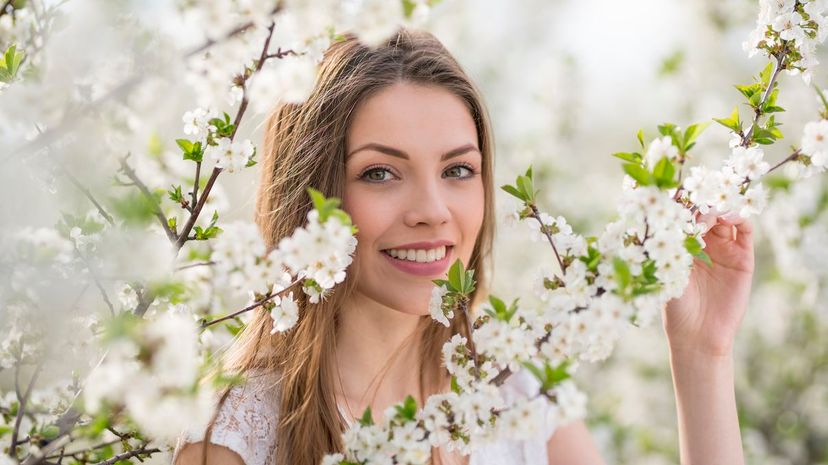
About This Quiz
As Rudyard Kipling once put it, "Smells are surer than sounds or sights to make your heart-strings crack." And fragrant flowers delight both the sight and the nose, evoking powerful feelings. Fragrant flowers are so mesmerizing that if you can recognize them, you can probably recall not only what they look like but also their scent and where you encountered them.Â
Flowers, in all their myriad sizes, shapes, varieties and colors, boast distinct scents that are unique to each and unlike any other. Is it sweet? Citrusy? Musky? Does it remind you of almonds or something else?Â
There are flowers whose scents do resemble something else you may be familiar with, and in this way trick the senses. However, if you know your flowers, you can pinpoint these idiosyncrasies and say, hey, you're not fooling me! I know what you are. I know your history or where you can be found. Do you look at a marigold and immediately recognize its attributes and scent? If you can tell your lily-of-the-valley from your daphne, you know just what we're talking about.Â
We've compiled a list of fragrant flowers that you would've surely encountered on a stroll, seen in a bouquet, or found in your grandma's garden. How many of these can you identify? Take this quiz and find out just how savvy you are at recognizing these fragrant flowers.Â
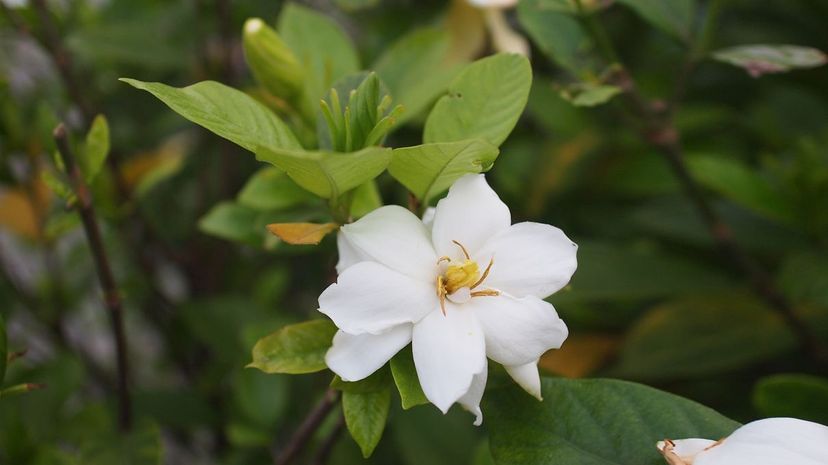
This luscious flower got its name from Alexander Garden, an 18th-century American naturalist. Known for its overpowering scent that is reminiscent of a green apple, gardenias originated in the East (China and Japan), but its hybrid forms can now be found all over the world. Gardenias are delicate plants and need just the right blend of humidity, sunlight and shade.
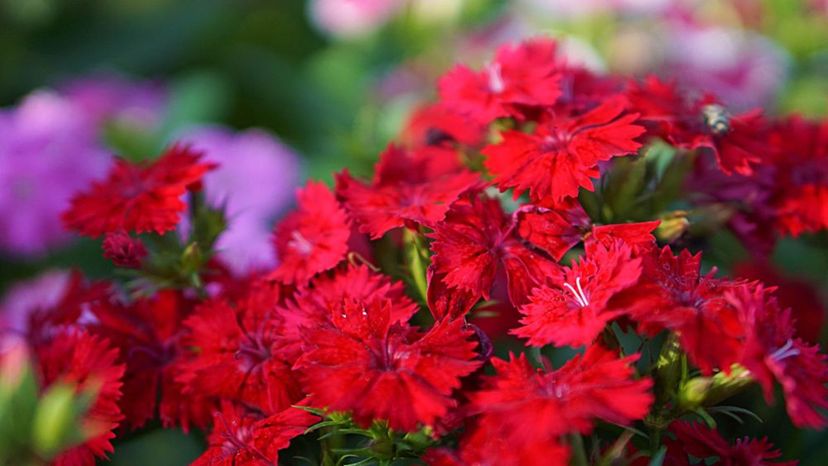
Although they are not all perennials, the one you might associate with an old-fashioned garden would be the dianthus perennial. With its bright pink blossom, dianthus calls to mind carnations on a smaller, daintier scale, wafting a clove-like scent.
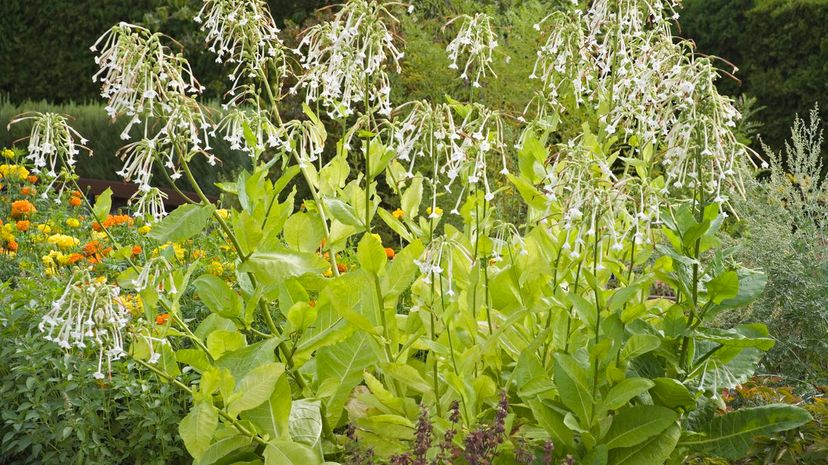
Known as nicotiana or flowering tobacco, this five-petalled flower grows quickly and has a sweet yet mild scent in the evening. However, the plant has a short life span, so many need to be replanted once its time runs out.
Advertisement
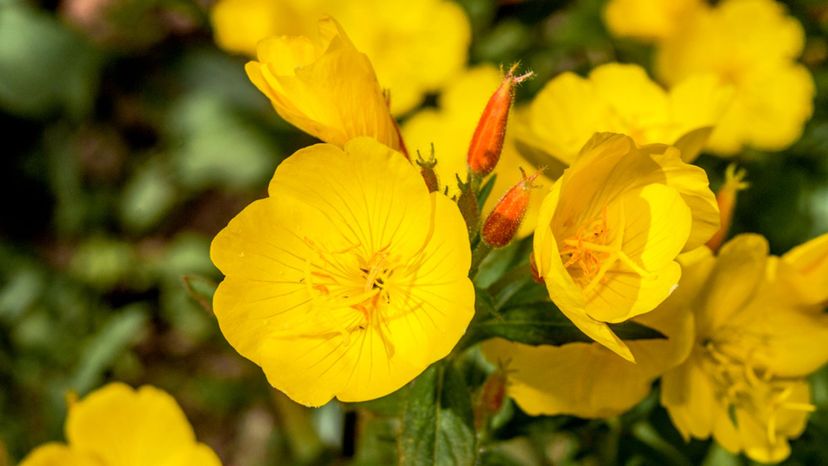
Used to treat a variety of maladies, the evening primrose is noted for its medicinal benefits as well as its enchantingly sweet smell. As a sturdy plant that needs little care, the evening primrose makes its olfactory mark after the sun goes down. It attracts insects as well as human admirers in the evening.
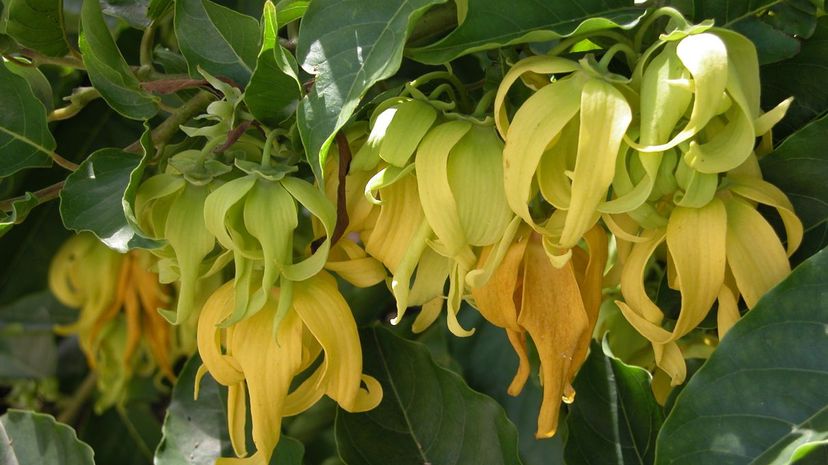
With its distinctive smell, ylang-ylang is one of the key ingredients in many of the world's most cherished perfumes. Ylang-ylang is also used as an essential oil to treat a variety of ailments, including depression and high blood pressure. It's a favorite in aromatherapy.
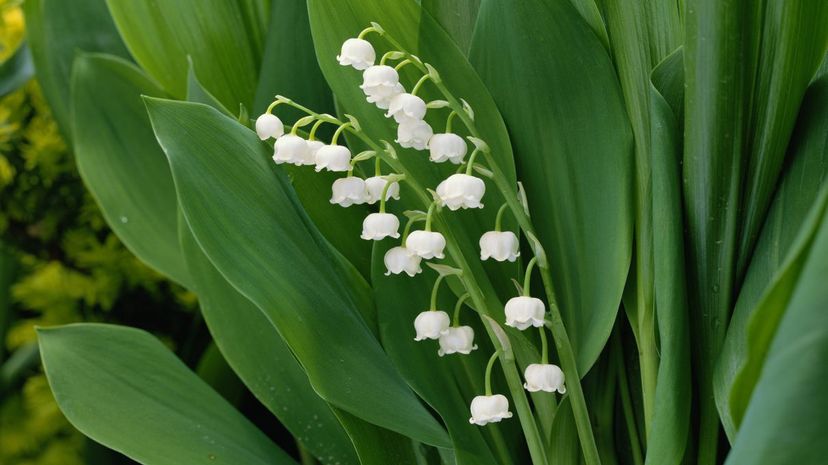
Related to the asparagus family, Lily of the Valley is a perennial flower that grows and grows without much tending. Whimsical and delicate, this cup-shaped flower has a soft, fresh yet lingering scent, especially when found in woodlands and forests.
Advertisement
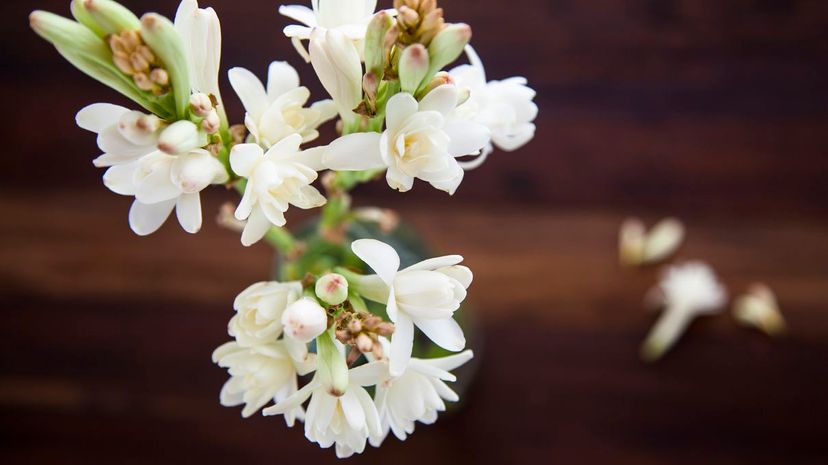
Some describe it as luscious and titillating, but there are many undertones to the tuberose, depending on its stage of bloom. Love it or hate it in a perfume, the scent of this long-stalked, creamy white flower is memorable indeed.
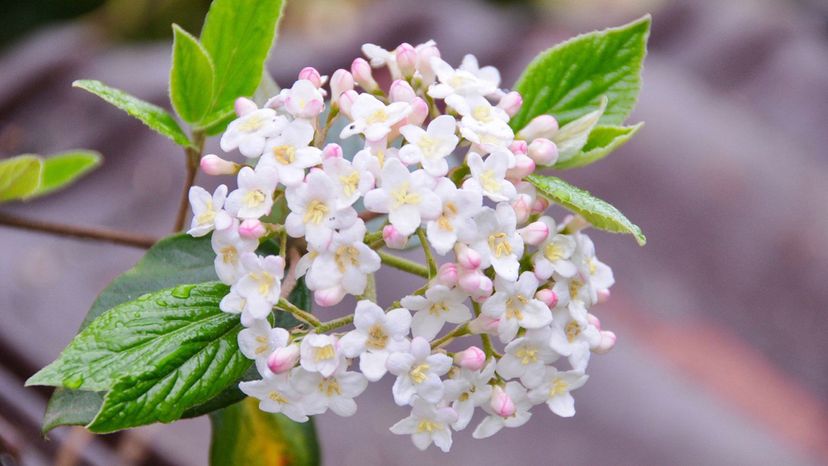
Seen in shrubs, the viburnum is an evergreen flower with a pleasantly strong scent. While its bloom and the accompanying smell are a springtime phenomenon, these dainty clustered flowers grow quickly and abundantly as hedges.
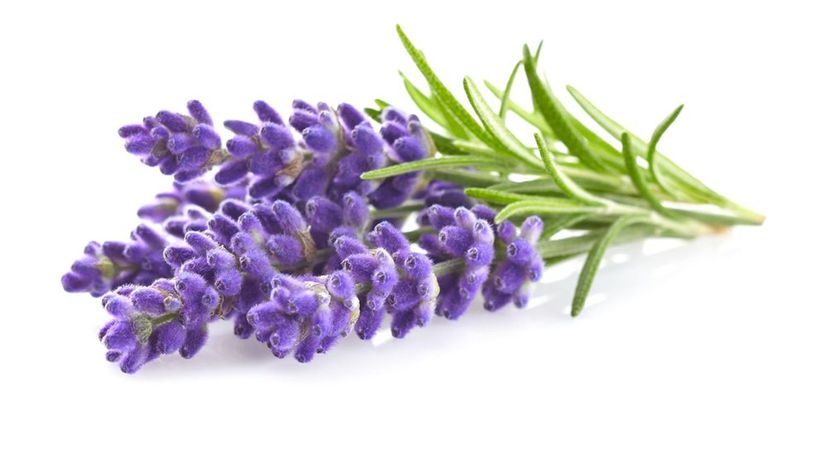
As a hardy shrub often found in gardens, lavender has a very distinctive smell that has long been recognized for its calming yet uplifting aroma. Of Mediterranean origin, lavender is now a mainstay in the U.S. and many other countries. Lavender fields in France, for example, are legendary for their breathtaking purple beauty.
Advertisement
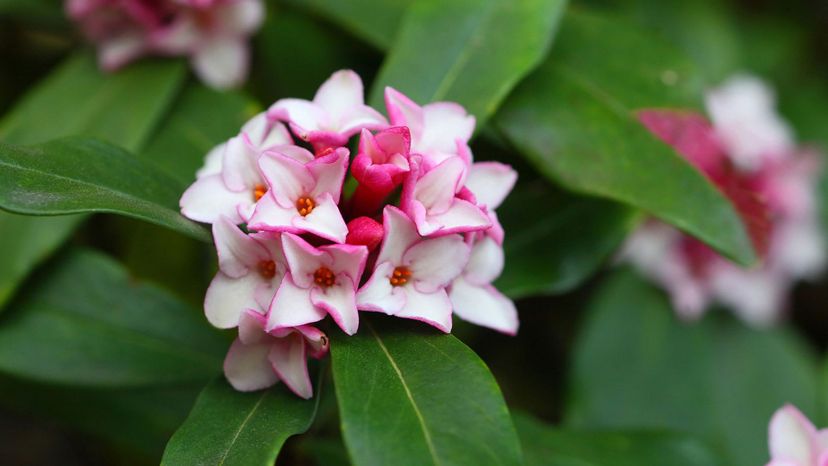
As a wintry plant, daphne blooms well into the early spring. As it does, it exudes a sweet, delectable smell that is adored by many. Even though there are over 50 species of the shrub, the evergreen varieties are the most often spotted.
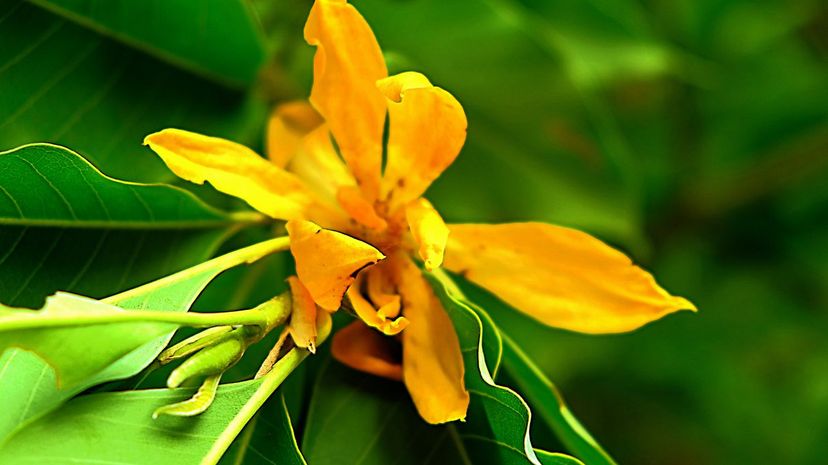
Also known as magnolia champaca, this is an evergreen tree with mango or cream-colored flowers that waft a deep, fruity smell from the early summer until September. Originally found in tropical Asia, michelia champaca (aka magnolia or alba) is prized for its distinctive aroma.
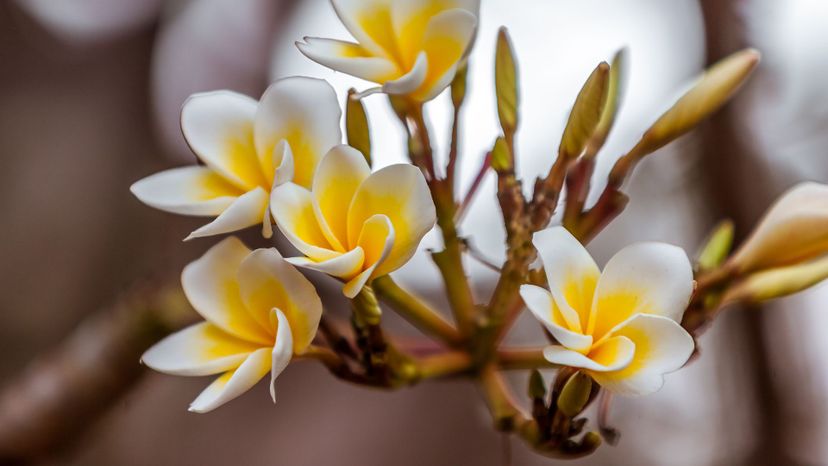
The enchanting plumeria is often found in Hawaiian lais. The plumeria is as vibrant in color as it is in scent and it can be found in many patterns. This enticing scent becomes stronger at night, luring unsuspecting passersby to take in its olfactory delight on a beach stroll.
Advertisement
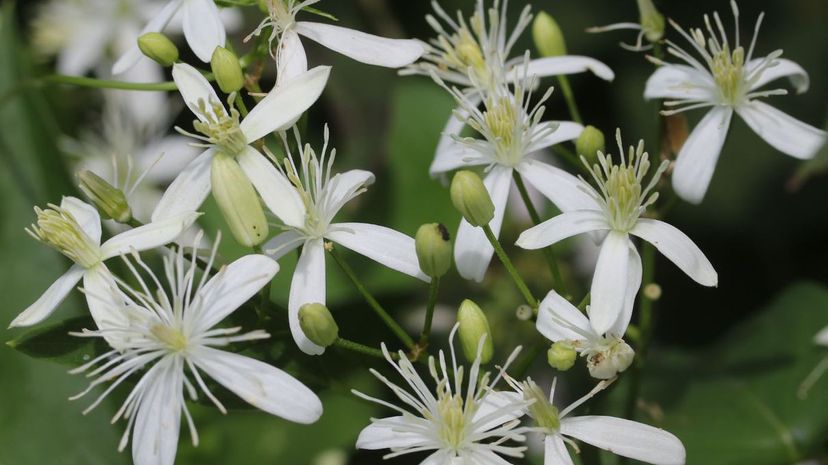
The sweet autumn clematis is a vine that has a fleecy, powdery appearance. It has a fragrance that contradicts its fleeting appearance. The scent is fresh yet quite pungent. Part of the buttercup family, this vine grows well and abundantly.
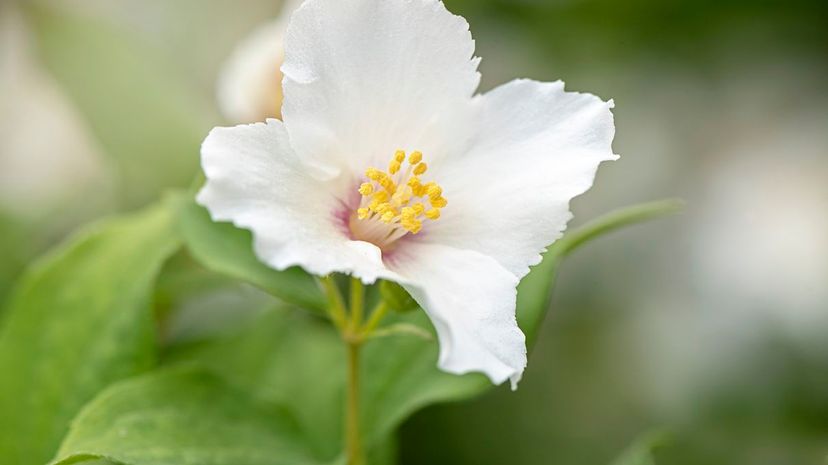
This wondrous shrub certainly got stuck with an odd name. It's white, not orange, and its short spring bloom gives off a scent that some describe as minty whereas others say is citrusy. Still, the mock orange flower is nothing to mock at.
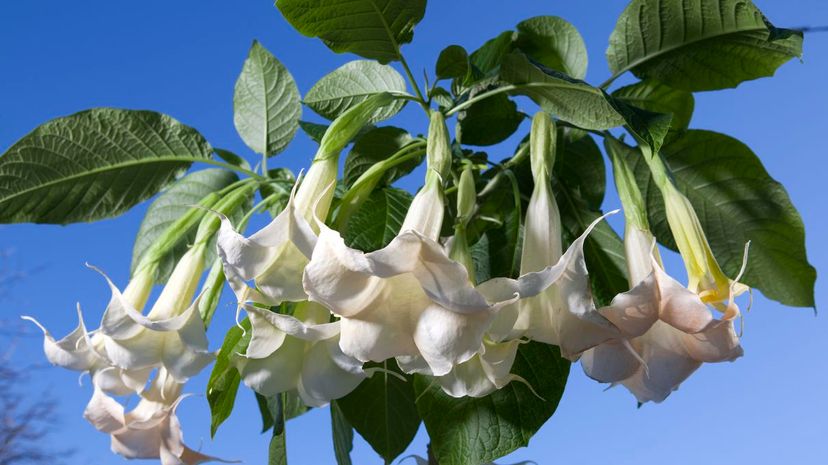
A tall, elegant plant, the brugmansia is also known as an "angel's trumpet." Along with its showy aesthetic appeal, the brugmansia gives off an intoxicating smell in the evening that some describe as sensual and heady. Others just say it's heavenly.
Advertisement
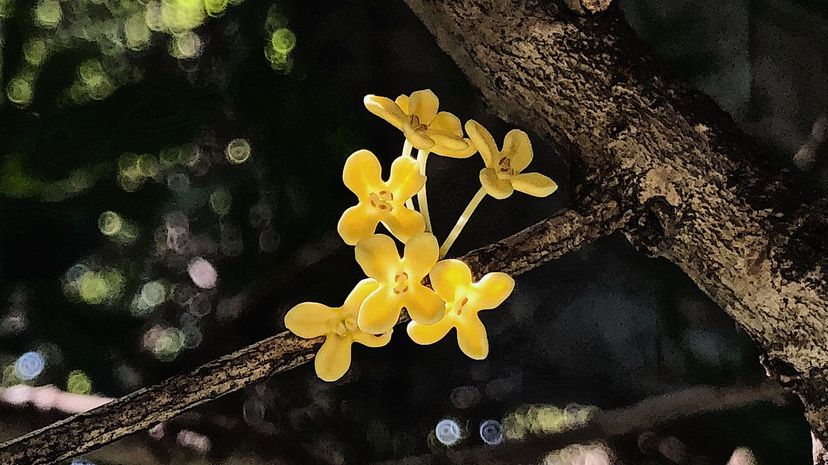
Known by many names, the osmanthus fragrans flower is notable for its pleasant apricot-like scent. As an evergreen shrub, it's an understated flower that gets its appeal not so much for its physical aspect but rather for its smell.
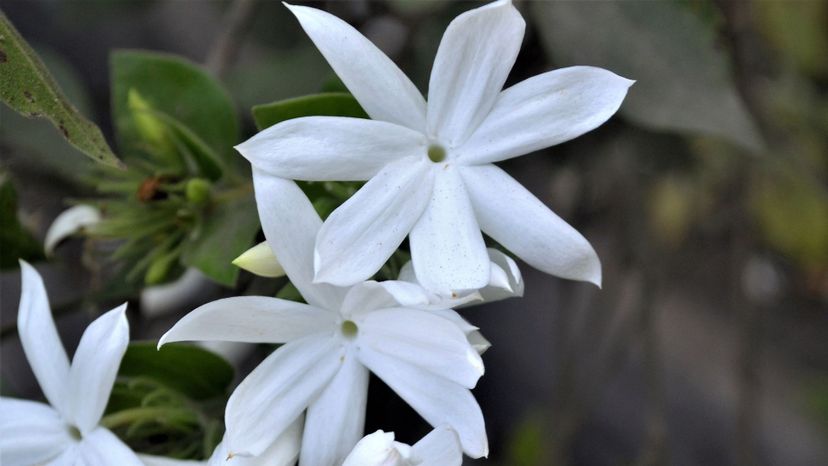
Called Jasminum sambac as well as many other names, this sweet-smelling beauty is the national flower of the Philippines. Delicate and reminiscent of vanilla, this flower grows well in the tropics and is said to symbolize purity and humility.
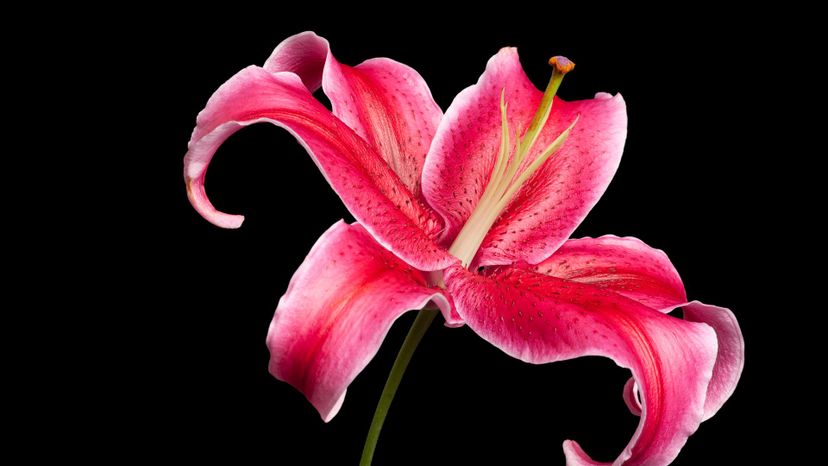
As one of the most aromatic kinds of lilies, which are already quite fragrant, the stargazer lily has a sort of spicy sweetness that is hard to miss. In a room, it overpowers any other scent, embodies passion and makes a bold statement.
Advertisement
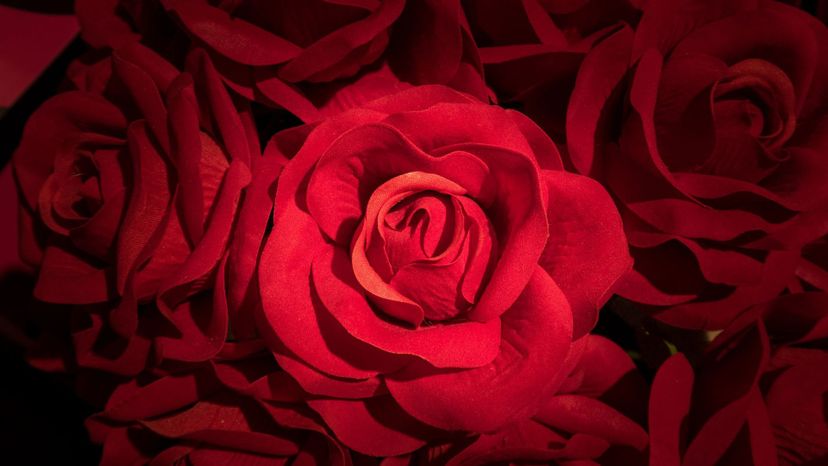
As the quintessential flower associated with romance, a rose has a very distinct smell that many consider blissful. "A rose by any other name would smell as sweet," is a line from Romeo and Juliet, of course, giving credence to just how long this flower has been pulling heartstrings.
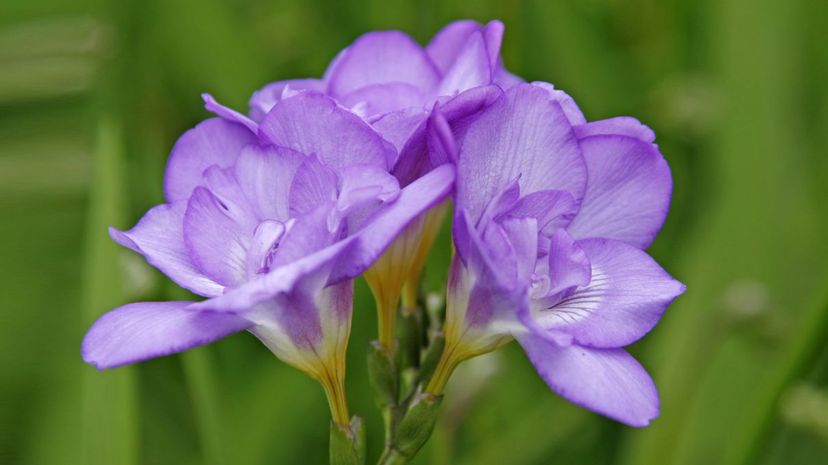
The dainty, long-stemmed freesia has a "ballerina" variety. This is not so surprising considering the shape of the freesia flower, which calls to mind a dancer's graceful form. Along with its beauty, the freesia is also known for its lovely fragrance.
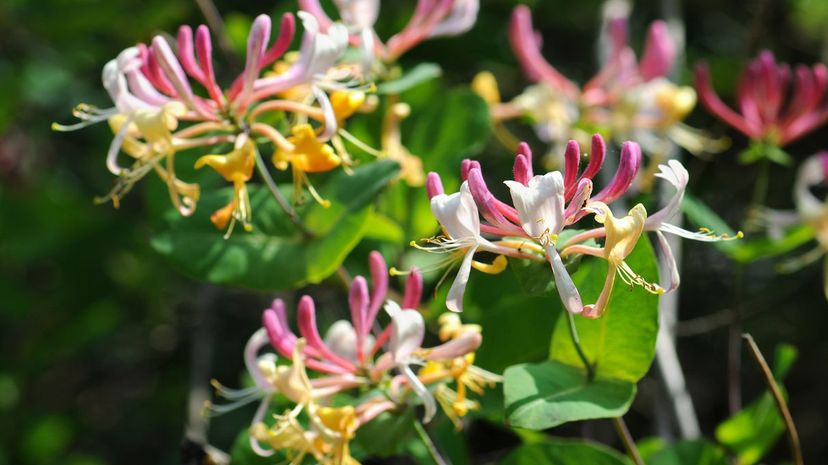
Honeysuckle vines and shrubs come in many varieties. Some are incredibly fragrant and heady, which may be appealing to some and overpowering to others. If you happen to run into winter honeysuckle, for example, you'll be sure to catch a whiff of its strong citrusy scent.
Advertisement
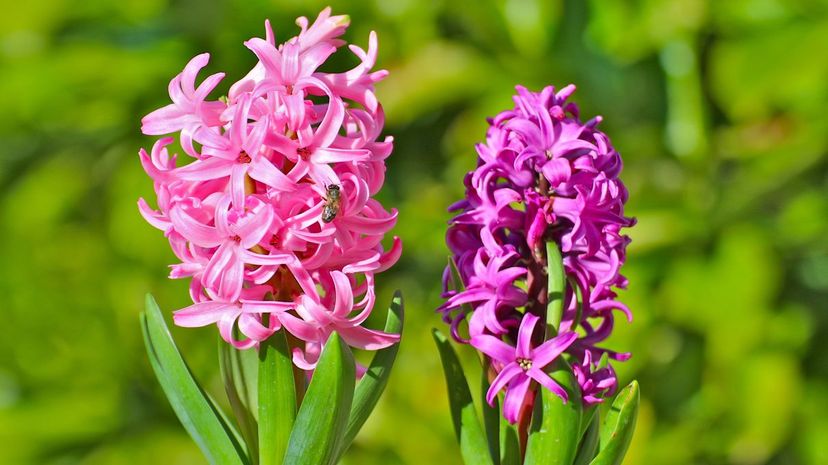
The multi-colored hyacinth vaguely resembles grapes and originally hails from the Mediterranean. It has a very original smell that with hints of berries, honey and what-have-you.
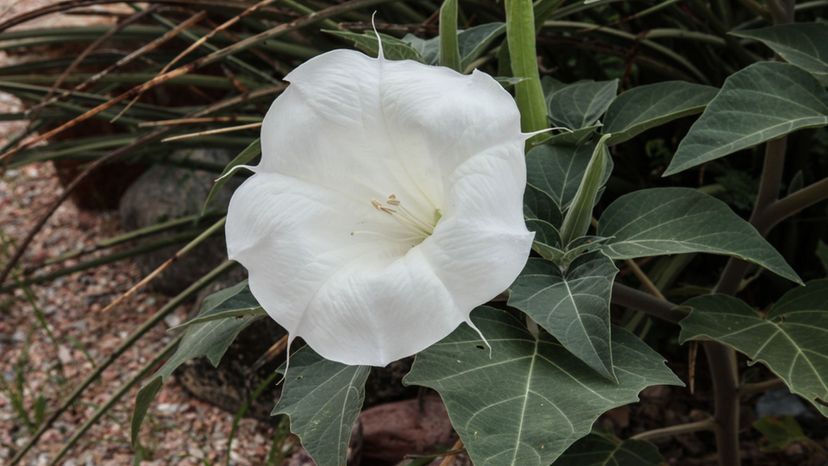
As opposed to angel's trumpet, aka brugmansia, the datura faces the sky instead of downward to the earth. They both have a distinct smell, though. The datura is known to have a sensual, sweet smell after dark.
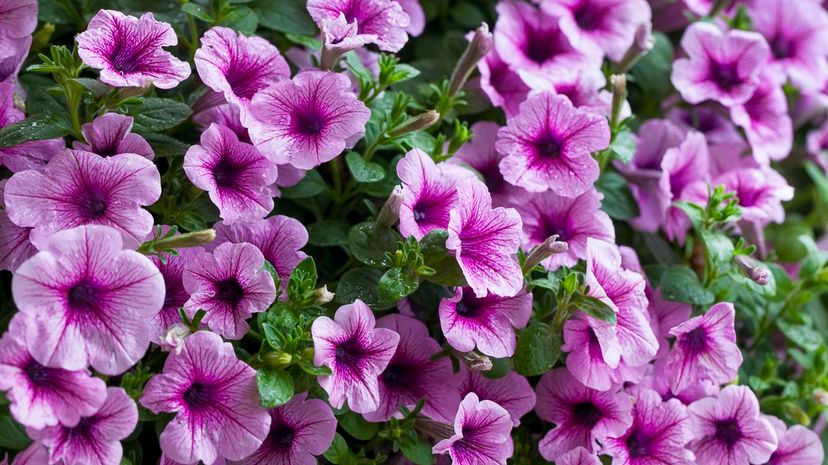
Although many of the modern varieties of petunias have little or no scent at all, the older types certainly do. If you run into a "Priscilla" petunia, for instance, you'll be sure to catch a whiff of its distinctive scent.
Advertisement
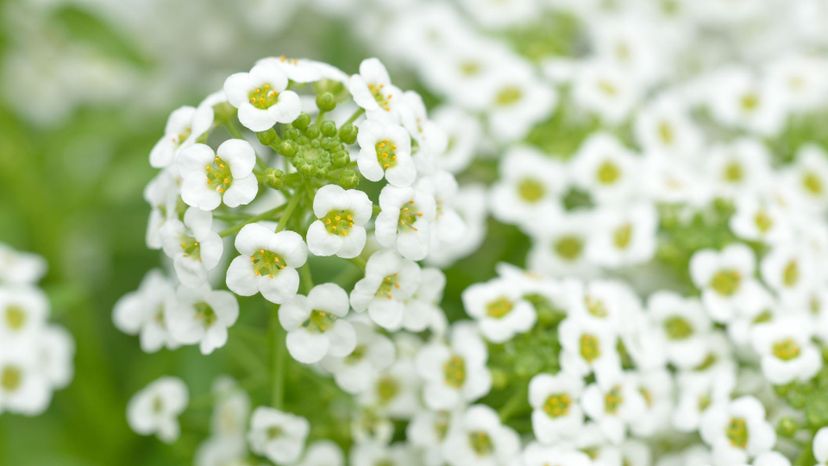
A flower that blooms in early spring with little prompting, the sweet alyssum gives off a honey-scented whiff. You might catch its scent when you least expect it, such as when you're walking around someone's rock wall.
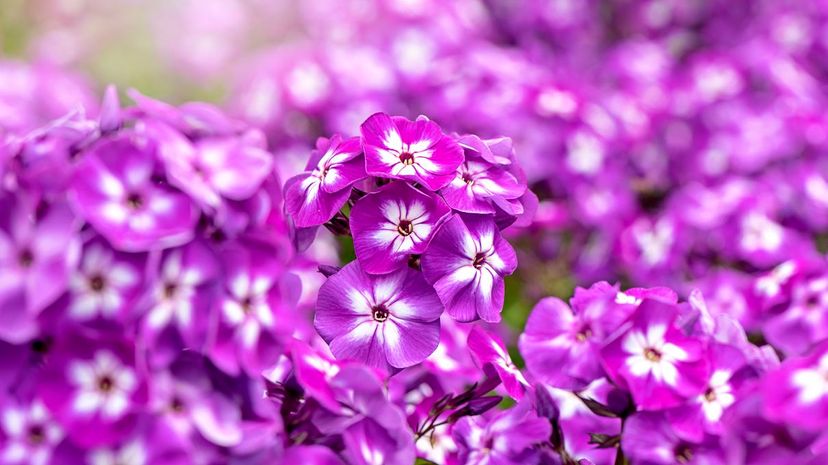
This perennial clustered-flower really stands tall with its super-long stems. It's also a flower that blooms well into the summer when its sweet smell is the strongest. This is a flower that thrives in the sun, which is when it really comes alive.
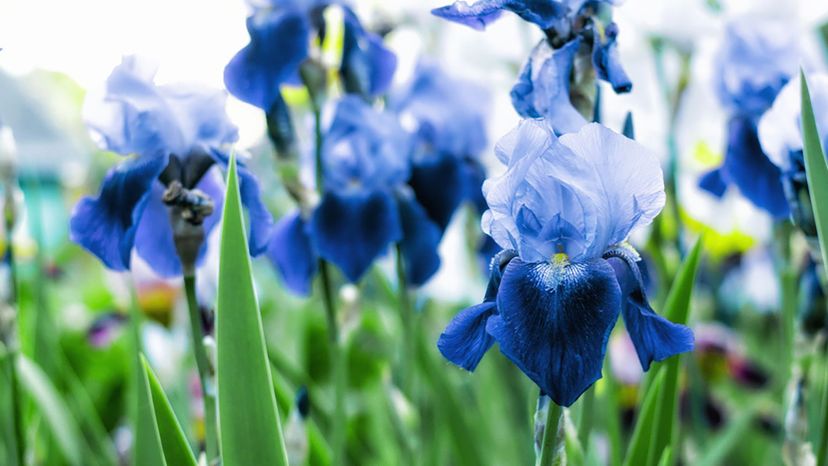
No, it doesn't literally have a beard. The fringed color around this variety of iris makes it known as a bearded iris, though. Ornamental and colorful, the bearded iris also has a range of scents that go from fruity to spicy, depending on the variety.
Advertisement
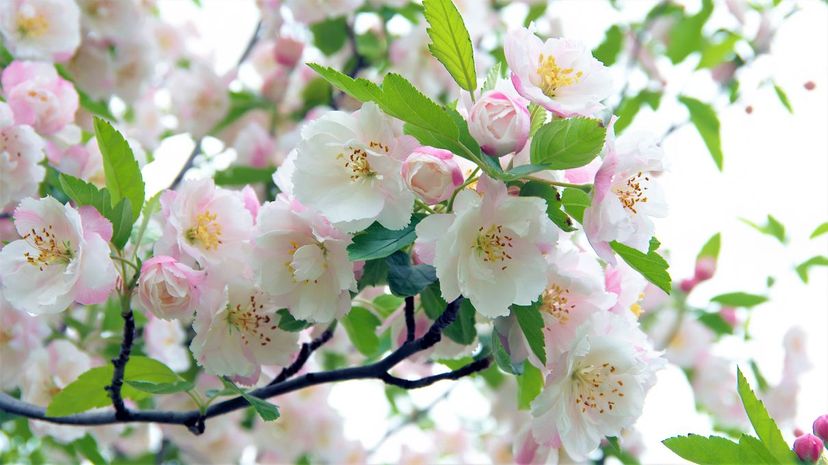
Small in stature but long in flowering splendors and smells, you may spot a blooming crabapple tree early in the spring. Their shapes vary a lot; some are pyramidal, whereas others are weeping varieties, and their scent is delightful.
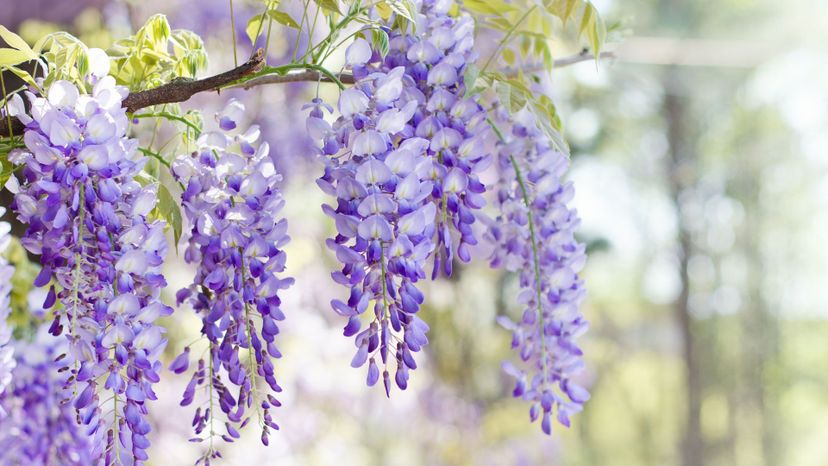
Although they are all fragrant, the Japanese and Chinese varieties of wisteria are known to have the strongest scent. Even though they are also deemed to be invasive, the smell of these varieties is notable for being quite spectacular.
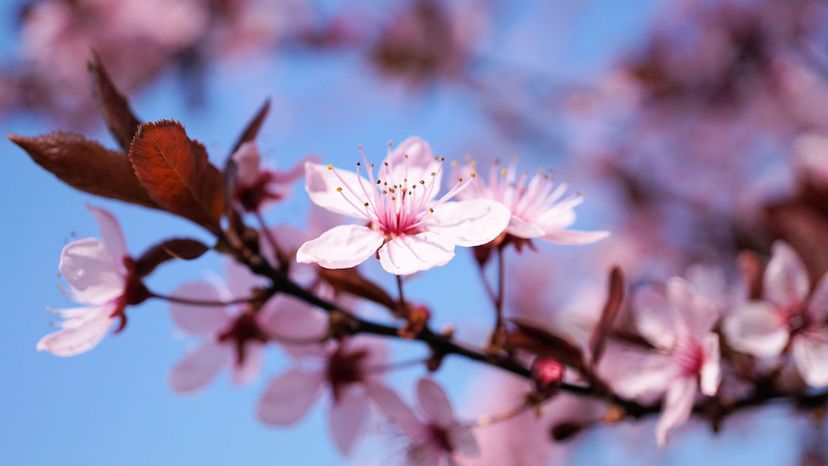
This shrub-like tree with their dainty, wispy pink flowers doesn't bloom for long, but when it does, its smell lingers and is legendary. This hybrid tree between plums and cherries also bears fruit that is frequently used in conserves.
Advertisement
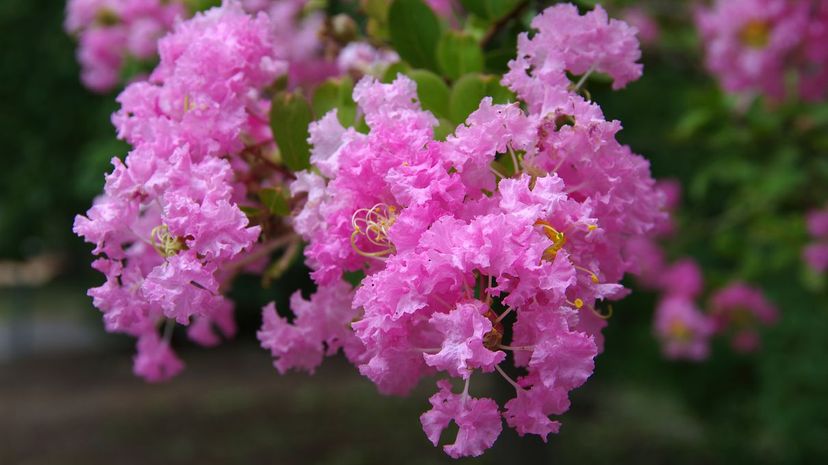
Although there are many varieties of crepe myrtle, the lagerstroemia fauriei, aka fantasy crepe myrtle, is the one that has a scent worth mentioning. It has graceful, ornamental white flowers that can be seen in the summer.
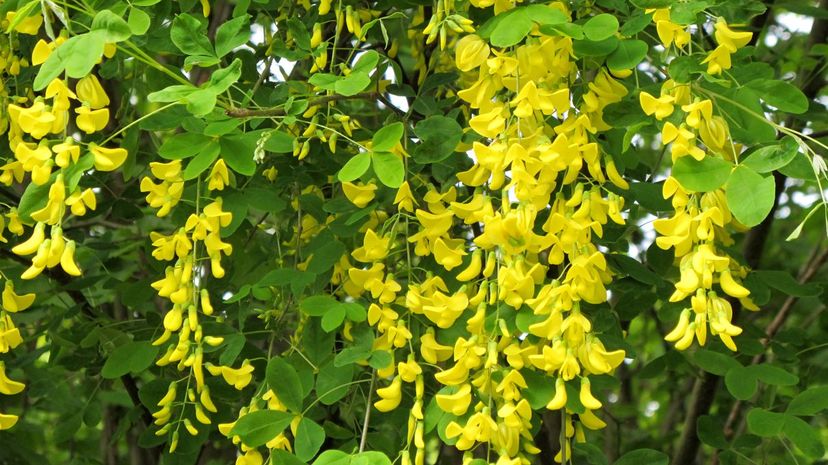
As a real dazzler in terms of aesthetic impact, the golden chain tree is a small tree/shrub that has bright dangling yellow flowers. Known by other whimsical names, the tree is as pleasing to the sight as it is to one's sense of smell.
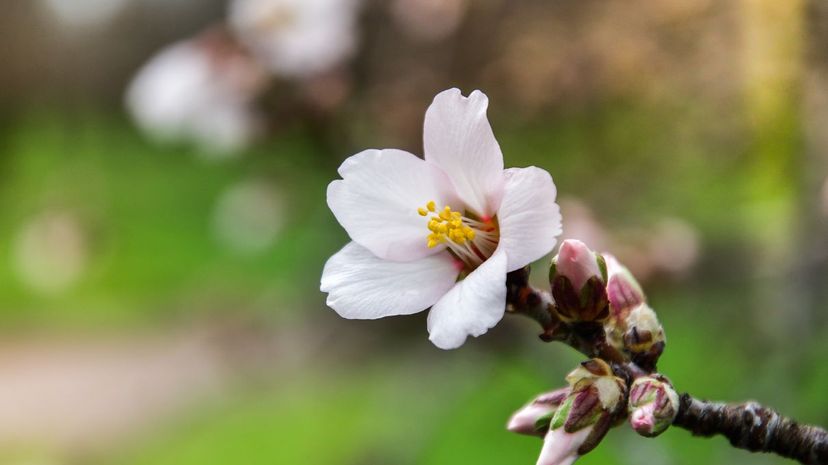
This is a tree that is so fragrant in the spring that it's known to be mood-altering, enchanting anyone who happens to be lucky enough to be in its presence. The delicate white and pink flowers are also a delight for the eyes. And, as if this weren't enough, the sweet almond tree will also bring forth almond nuts themselves in due course.
Advertisement
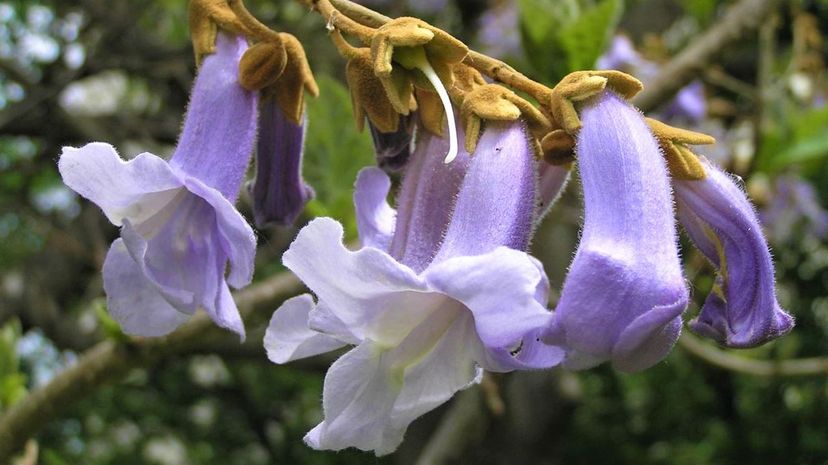
As a legendary, fast-growing tree, the royal empress is also famed for its wondrous scent. The scent of the lilac-hued flowers has been described as resembling honeysuckle, vanilla or some candy concoction.
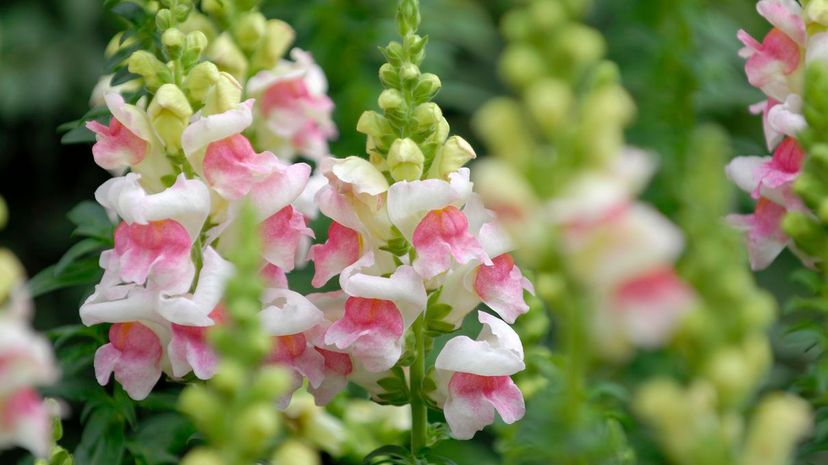
The snapdragon, with its myriad colors, also has a royal bride variety. The delicate white flowers are now a mainstay in bridal bouquets and arrangements and are prized as much for their beauty as the pleasant, ethereal scent.
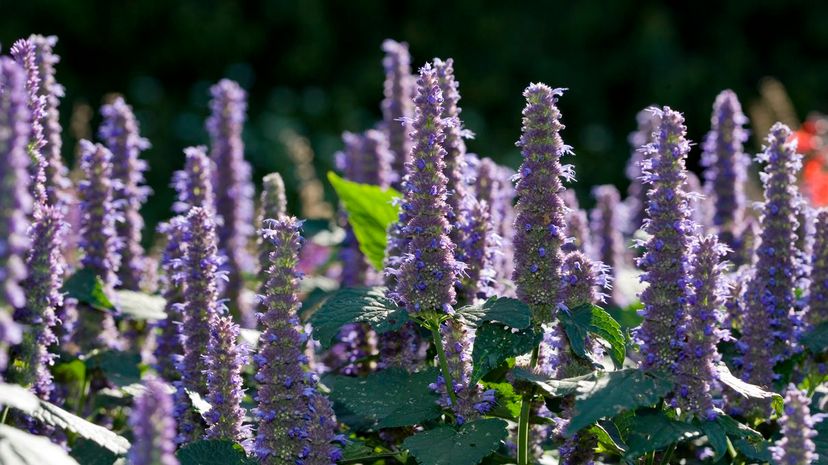
Graceful and distinctly aromatic, the Agastache blooms in the summer. Much admired for its spire-like flower bulbs, the Agastache has an elegant look that sets the flower apart from more common garden varieties. (Still, there are many varieties of Agastache.)
Advertisement
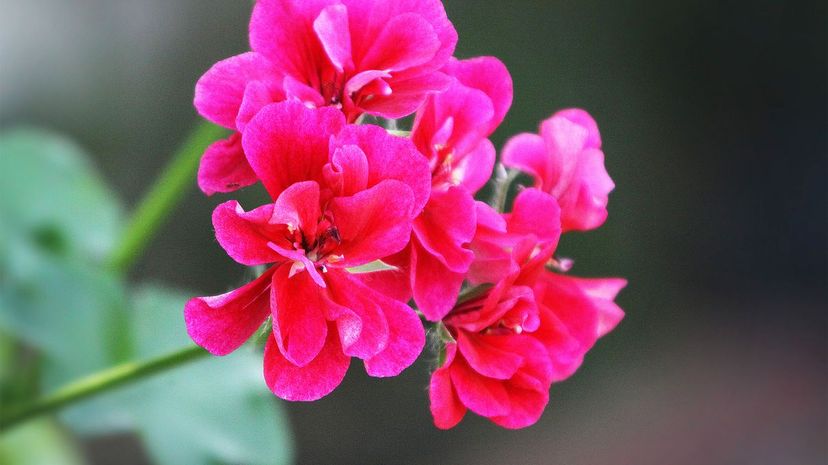
Relatively rare, this pink geranium wafts a scent that resembles pine. Because it's rarely seen, you're unlikely to encounter it on a regular stroll, but if you do, lucky you! The scent of this geranium variety is much revered.
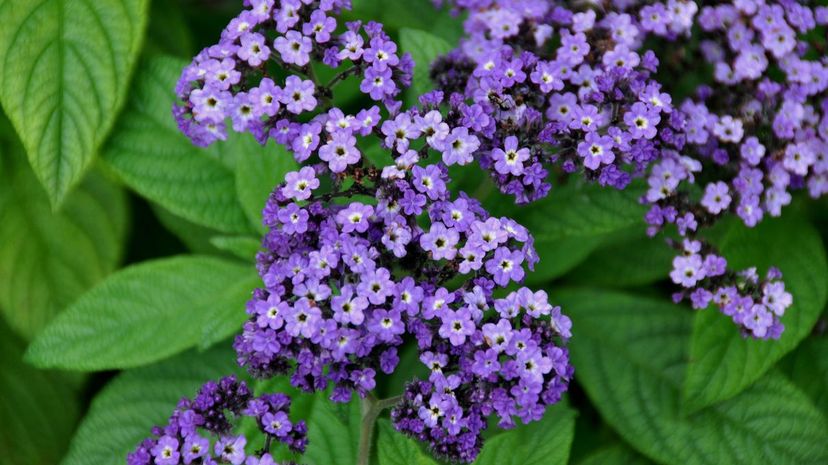
With its delicate beauty, the old-fashioned heliotrope evokes the scent of amaretto, the classic liquor. Amaretto, for its turn, smells of almonds. This variety of heliotrope, coincidentally, gets extracted to simulate almonds.
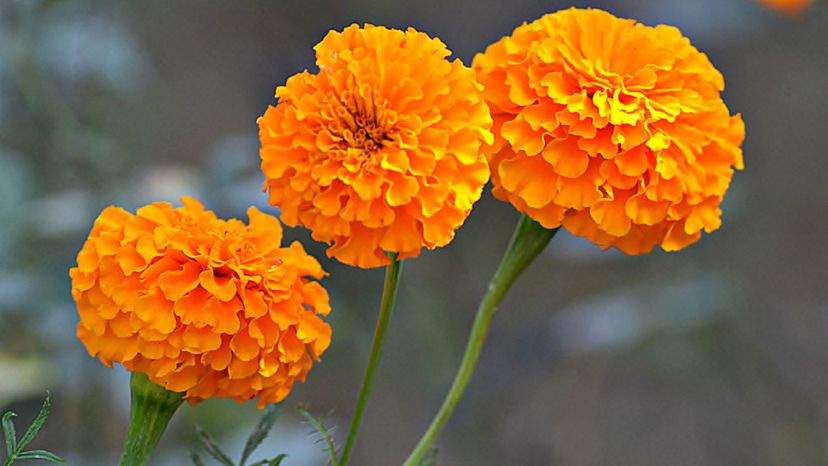
Used in some perfumes, marigold has a pungent smell beloved by some and loathed by others. It's an acquired taste, some would say. Love it or hate it, the mere sight of the vibrant marigold is unlikely to offend anyone's olfactory tastes.
Advertisement
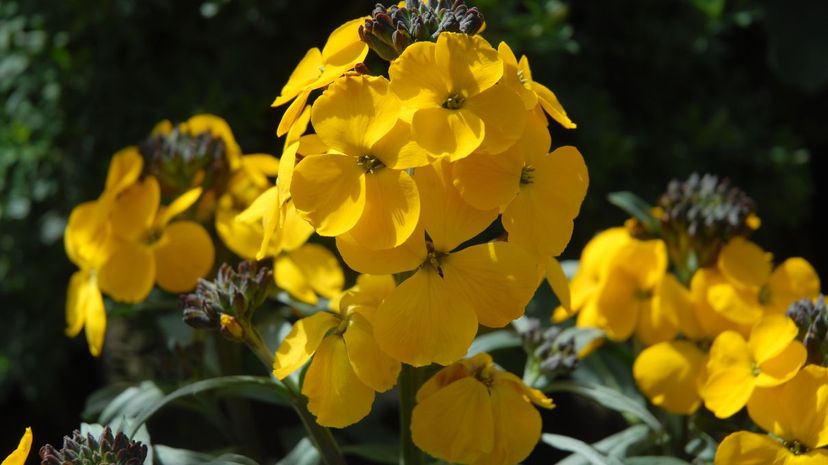
The "fair lady" wallflower variety is much prized in English gardens for both its vibrant colors and delightful fragrance. It's the kind of flower you will likely encounter while visiting an English cottage or country home.